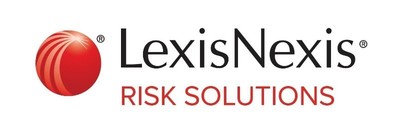LexisNexis® Risk Solutions Introduces Fraud Intelligence Synthetic Score to Help Businesses Detect Fraudulent New Account Applications
LexisNexis Risk Solutions has launched the Fraud Intelligence Synthetic Score, a tool aimed at identifying and mitigating synthetic identity fraud. This innovative product generates a risk score from 001 to 998 by analyzing various identity characteristics and patterns linked to fraud.
With synthetic identity fraud estimated to cost the U.S. up to $2.04 billion in 2021 and projected to reach $2.42 billion by 2023, the need for effective fraud detection solutions is critical. LexisNexis aims to enhance businesses' operational strategies to combat escalating fraud risks.
- Launch of a new predictive fraud detection tool to combat synthetic identity fraud.
- Addresses an increasing financial threat estimated to cost U.S. businesses over $2 billion annually.
- Enhances operational efficiency in fraud detection and risk management.
- None.
Insights
Analyzing...
ATLANTA, July 21, 2021 /PRNewswire/ -- LexisNexis® Risk Solutions today unveiled a new product designed to help businesses mitigate synthetic identity fraud. LexisNexis® Fraud Intelligence Synthetic Score analyzes hundreds of unique identity characteristics and events to help businesses identify inconsistencies and fraud patterns in application profiles. The tool utilizes data sets and high-powered analytics to examine application profiles associated with synthetic fraud to arrive at a three-digit numeric risk score ranging from 001 – 998.
The LexisNexis Fraud Intelligence Synthetic Score goes beyond traditional pass/fail criteria for applicant verification to provide fraud risk warning intelligence to investigative teams for more efficient application review. The solution predicts the likelihood an application will result in fraud: The lower the score, the lower the risk.
Synthetic fraud on the rise
"Given the ease with which crime rings have been able to establish synthetic identities, this attack vector is a massive problem in the U.S. market," said Julie Conroy, research director for Aite Group. "Aite Group estimates that synthetic identity fraud for unsecured U.S. credit products will total
The Federal Reserve recently acknowledged the seriousness of synthetic identity fraud by working with a group of industry fraud experts including Jeffrey Feinstein, PhD, vice president of advanced analytic strategy at LexisNexis Risk Solutions, to publish a new, industry-recommended definition. The effort was meant to improve synthetic identity fraud detection, measurement and mitigation across the payments industry.
The resulting industry-recommended definition of synthetic identity fraud is the fraudster's use of a combination of personally identifiable information (PII) to fabricate a person or entity to commit a dishonest act for personal or financial gain. For example, fraudsters may create synthetic identities using potentially valid PII such as a social security number and combine it with false personally identifiable information such as a fake address or phone number.
The Fraud Intelligence Synthetic Score helps businesses better predict and prevent the main drivers of synthetic fraud that erode profitability. It delivers a solid foundation for fraud prevention that aligns with core operational and risk strategies, allowing businesses to quickly ascertain fraud threats and manage exceptions.
"Fraud continues to grow significantly in terms of attacks and costs, making identity verification, fraud detection and customer friction harder to balance," said Kimberly White, senior director of fraud and identity for LexisNexis Risk Solutions. "Synthetic identity fraud has become the preferred method for many criminals and we are pleased to bring to market a solution that provides a robust view of identity and fraud behavior to help address the escalating synthetic identity fraud problem in the U.S.
"It is of paramount importance for organizations to layer advanced identity and fraud transaction risk solutions," White continued. "Those that use this approach experience fewer issues and a lower cost of fraud. The unification of three of the industry's leading and trusted authorities in identity – LexisNexis Risk Solutions, ID Analytics® and Emailage® – has created a synthetic risk score with fraud detection capabilities, which can significantly help businesses improve the identification of fraudulent applications."
LexisNexis Risk Solutions continues to lead the industry by delivering disruptive innovation and executing on a unified fraud prevention strategy. In 2020, through its parent company RELX, the company acquired key industry leaders ID Analytics and Emailage. Fraud Intelligence Synthetics Score serves as an example of how LexisNexis Risk Solutions has utilized these acquisitions to create a robust view of identity.
About LexisNexis Risk Solutions
LexisNexis® Risk Solutions harnesses the power of data and advanced analytics to provide insights that help businesses and governmental entities reduce risk and improve decisions to benefit people around the globe. We provide data and technology solutions for a wide range of industries including insurance, financial services, healthcare and government. Headquartered in metro Atlanta, Georgia, we have offices throughout the world and are part of RELX (LSE: REL/NYSE: RELX), a global provider of information-based analytics and decision tools for professional and business customers. For more information, please visit www.risk.lexisnexis.com and www.relx.com.
Media Contact:
Marcy Theobald
678.694.6681
Marcy.Theobald@lexisnexisrisk.com
![]() View original content to download multimedia:https://www.prnewswire.com/news-releases/lexisnexis-risk-solutions-introduces-fraud-intelligence-synthetic-score-to-help-businesses-detect-fraudulent-new-account-applications-301337745.html
View original content to download multimedia:https://www.prnewswire.com/news-releases/lexisnexis-risk-solutions-introduces-fraud-intelligence-synthetic-score-to-help-businesses-detect-fraudulent-new-account-applications-301337745.html
SOURCE LexisNexis Risk Solutions








